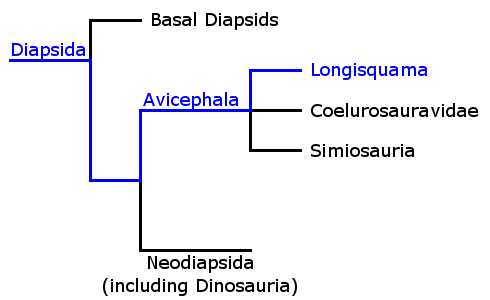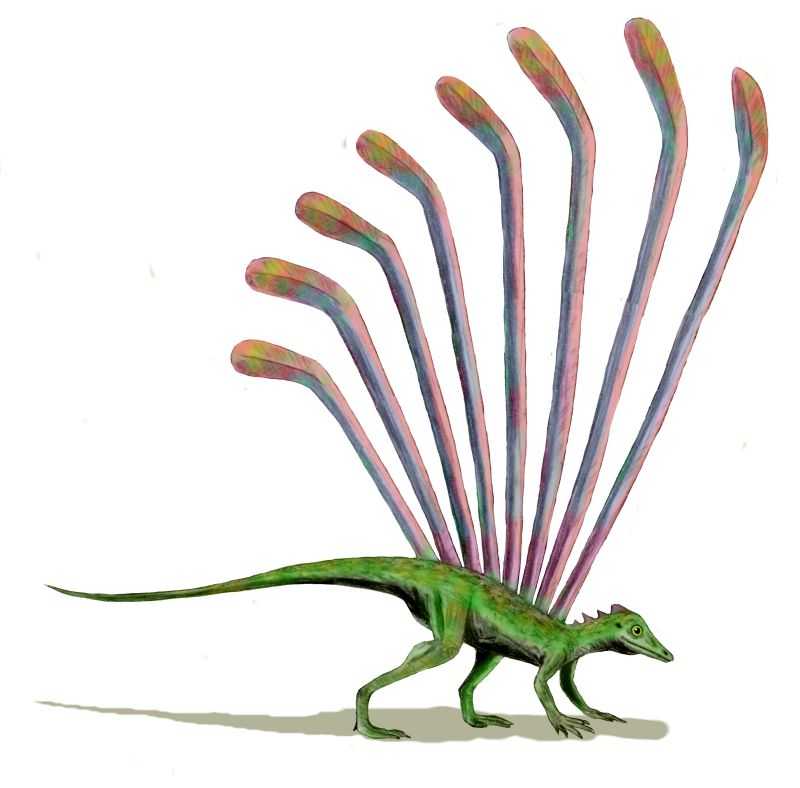
Unravelling the Evidence
Specimens:

 Name: Longisquama insignis
Name: Longisquama insignisAge: ~220 million years
Size: ~10cm long, 'feathers' reaching 15cm long
Since its description in 1970, Longisquama
has presented a strange problem to evolutionary biologists.
Longisquama lived around the same time as the first dinosaurs, but
belongs to an older lineage. What lineage exactly is hotly
debated, as such a strange creature could fit into several different
groups. The phylogeny shown here is taken from a 2004 paper by
Phil Senter.
Longisquama was
preserved with skin impressions for much of the body, including the
enormous hockey-stick shaped structures extending from its back.
Impressions made by the structures, as well as the skin at their base,
are reported by some to be identical to those patterns that would be
left by feathers. Others claim that evidence of a membrane
demonstrates that these structures were actually very different to
feathers.
Logic certainly suggests that feathers are unlikely in Longisquama, as the next fossil record of feathers is Archaeopteryx - a whole 70 million years later. The Archaeopteryx fossil is quickly followed by many other related feathered dinosaurs, whereas Longisquama is a one-off. It is reasonable to think that Longisquama is a good example of convergent evolution
- where similar evolutionary pressures cause similar structures to
evolve several times independently. Indeed, several other
reptiles in the Avicephala were gliding reptiles, so this would be a
sensible evolutionary path for Longisquama;
and gliding is one of the theories for early birds developing feathers
as well. Convergent evolution may also explain the presence
of feathers in Tianyulong, which is almost as distantly related as Longisquama from other feathered dinosaurs.
Alternative explanations seem very unlikely. Some have suggested that Longisquama is indeed the earliest known ancestor of birds, either arguing that birds did not evolve from dinosaurs or that Longisquama
itself is a primitive dinosaur. These are extraordinary claims,
going against wide scientific agreement, but yet there is no
extraordinary supporting evidence.
References:
Jones, T.D. et al., 2000. Nonavian feathers in a late Triassic archosaur. Science, 288(5474), p.2202.
Reisz, R.R. & Sues, H.D., 2000. Palaeontology: The 'feathers' of Longisquama. Nature, 408(6811), p.428.
Senter, P., 2004. Phylogeny of Drepanosauridae (reptilia: Diapsida). Journal of Systematic Palaeontology, 2(03), pp.257-268
Sharov, A.G., 1970. A peculiar reptile from the lower Triassic of Fergana. Paleontologiceskij Zurnal, (1), pp.127–130.
Image Credit: